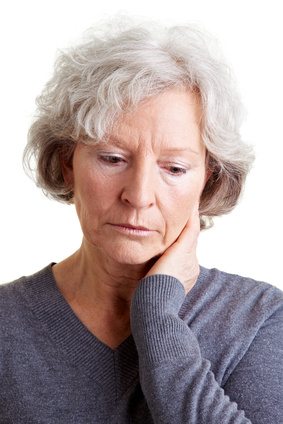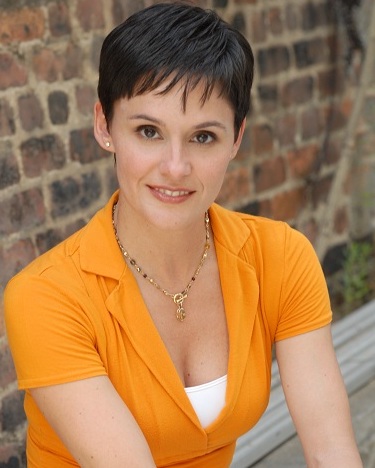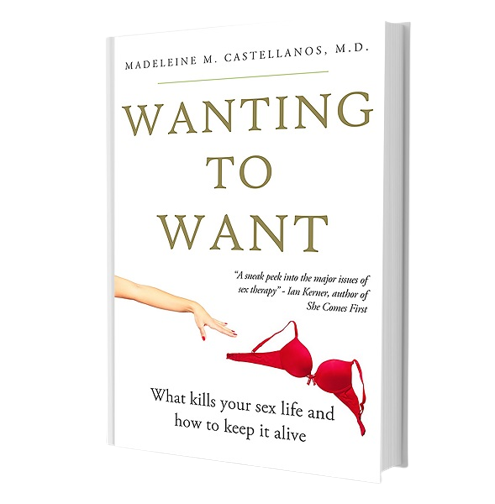Loss of Sexual Desire in Women

Let’s face it, it isn’t so easy for women. On the one hand, you have women who were brought up to be “proper,” “modest,” “ladylike” (whatever that is!) and were told that desiring or even enjoying sex was not becoming. Then you have women who were taught that it was a sin to entertain her libidinous cravings, that wonderful power that leads to the meaning of life itself. Add to that a little hormonal roller coaster, years of motherhood, chronic stress, impossible beauty standards, and expectations that she should be able to do everything. That’s a recipe for lack of sexual desire. It doesn’t always start off this way, and some women who have a very good sex life early on have difficulty figuring out why their sexual desire has seemingly dropped off a cliff. There are many reasons why women experience a loss of sexual desire.
One of the most common, and least acknowledged, is the use of hormonal birth control. Most birth control pills and other hormonal birth control methods use some form of estrogen. The effect this has in the body is to increase the body’s production of Sex Hormone Binding Globulin (SHBG), a protein that transports hormones around the body in the bloodstream. The trouble is that while hormones are bound to SHBG, they can’t be used by the tissues. The hormone that has the highest rate of binding to SHBG is testosterone. So when a woman uses hormonal birth control containing estrogen, she is effectively decreasing her levels of available testosterone. Since testosterone helps fuel sexual desire, fantasy, and also lubrication in response to arousal, many women are left feeling very blasé about sex. Oftentimes, it is not an issue for women in their late teens or early twenties. But as their hormone levels start to decrease naturally with age, it can become a very surprising reality.
A similar phenomenon occurs during menopause, either natural or surgical-induced because of removal of the ovaries. The onset of low sexual desire is usual less noticeable with naturally-occurring menopause because of the gradual decline in hormone levels as opposed to the abrupt plummeting of hormones after surgery. Since a woman’s ovaries produce about half of her overall testosterone, once they are no longer there, or no longer receiving the message from the brain to make sex hormones as in natural menopause, her desire seems to also crawl back into its shell. Interestingly enough, a woman’s level of desire can be fairly well preserved depending on her psychology and her level of sexual activity.
Studies show that women who had a satisfying sex life before menopause tend to have greater sexual functioning and sexual satisfaction after menopause as well. Remember that a woman’s arousal is fueled not only by good physical stimulation, but also by an inviting emotional environment. It’s difficult to say which is more important, a woman’s attitude towards sex and enjoyment in her sex life overall, or having good blood flow with regular sexual activity. Those women who continue to have regular penetrative sex (at least once a week either with intercourse or in masturbation with a dildo or vibrator) end up having better blood flow to all of the tissues of her sex organs.
Obviously, lifestyle and the satisfaction with your relationship also contribute greatly to a woman’s level of sexual desire. Being out of shape, being exhausted, or carrying pent up anger or resentment all tend to squash the life out of any sexual desire that was there before. But there are solutions. It’s never easy to make the lifestyle changes that lead you back to balance, but the payoff is great. Similarly, if you suspect that you may be having hormonal causes or other physical causes keeping you from desiring sex, such as pain or discomfort, please speak to your gynecologist about it. If you find that your doctor is willing to have a reasonable discussion with you about it, please pass her name along to other women. If your doctor leaves you feeling embarrassed, foolish, or belittled, there are other doctors to choose from.










I am a 76 y/o woman, still wk’g fulltime, in good physical conditon w/all systems working as they should & not bad looking. Husband 83 w/Parkinson’s & dementia in a nursing home fulltime, married 27 yrs. We ea have children, not w/each other. Of all the things I miss good sex is fairly close to the top. Husband was always less open & comfortable about sex. Childhood up bringing/religion was at the root of it for him. So, I am still a married woman & most men out there my age need someone to care for them. So where does that leave me. My romance/sex comes from romances novels. Some have some pretty descriptive sex scenes.I’ve thought about buyin a vibrator….but where & I would not want my 5 grown children to know………….any suggestions?
June Coleman
When making the decision to nurture your sexuality, sometimes the circumstances of life complicate things. You have a husband, but he no longer lives with you as a husband. There is nothing wrong with buying a vibrator or a dildo for your own personal use. The body certainly does work on a “use it or lose it” method. I don’t see any reason for any of your children to find out. But if they did, maybe they could learn a thing or two about taking responsibility for your sexuality. More power to you, and keep reading those novels!
Hi Madeleine,
Is it normal for a guy of 40yrs to have sex for 30mins nonstop? How about guys of age 40yrs as well who cannot perform beyond 10mins.
Pls rate these 2 group performance and advise me accordingly.
Toko mike
Nigeria
@Toko I’m not really sure what your question is, but I can tell you that most guys who have optimal thrusting for 1-2 minutes usually orgasm in that time. If a guy wants to last longer than that, he has to vary the speed, intensity, position, etc. The definition of “sex” includes a wide variety of activities. And the term “perform” is vague and non-descriptive. I don’t really like the term “perform” because it tends to put more pressure on guys.
I lost my sexual desire=ability to have intercourse after I had a hysterectomy in my 30’s- I am sure this was one of the reasons my ex found a younger woman/